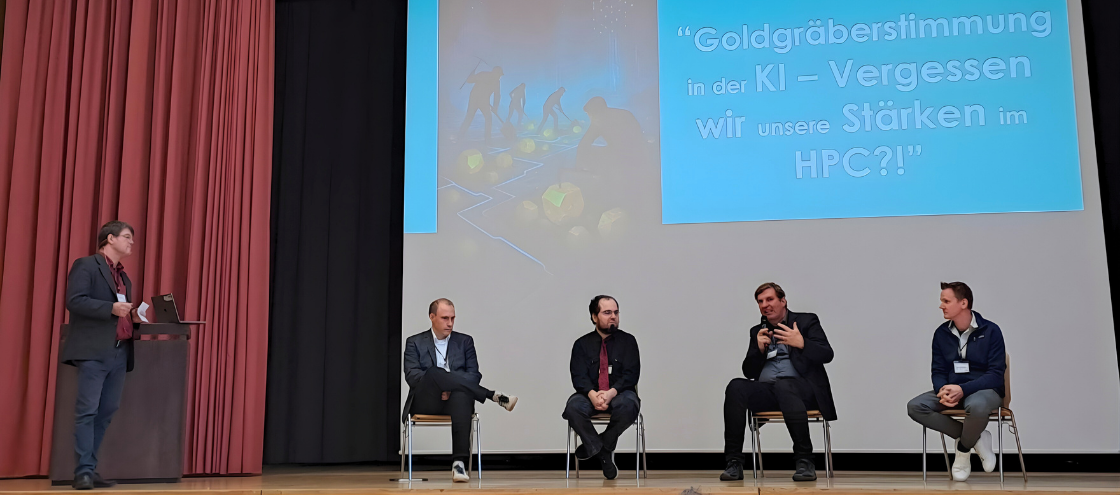At this year’s HPC Status Conference of the Gauß Alliance Network in Göttingen, current developments at the intersection of high-performance computing (HPC) and artificial intelligence (AI) were in the spotlight. Among the speakers were leading AI researchers from the Lower Saxony Center for Artificial Intelligence and Causal Methods in Medicine (CAIMed).
The final day was opened by Prof. Dr. Fabian Sinz, CAIMed mentor for Digital Twins in Medicine and Professor of Machine Learning at the University of Göttingen, with his keynote address “Towards in silico Neuroscience.” He demonstrated how computational models can deepen our understanding of neural processes and enhance medical diagnostics and therapy.
Prof. Dr. Sören Auer, CAIMed mentor for Semantic Models in Medicine and Director of the Leibniz Information Centre for Science and Technology (TIB), devoted his talk to “Responsible Neuro-Symbolic AI and Applications.” He emphasized the importance of combining neural (learning-based) and symbolic (knowledge-based) methods to achieve trustworthy and explainable AI outcomes. Transparency, traceability, and accountability, he argued, must remain central in critical fields such as medicine.
The subsequent panel discussion, titled “Gold Rush Mood in AI: Are We Forgetting Our Strengths in HPC?!” brought together Dr. Christian Terboven (RWTH Aachen), Prof. Dr. Julian Kunkel (AI Service Center KISSKI, University of Göttingen), Prof. Dr. Sören Auer (CAIMed / TIB), and Dr. Christopher Kadow (German Climate Computing Center). The participants agreed that Germany possesses outstanding HPC expertise, which is essential for developing AI technologies in a sovereign and independent manner. Powerful HPC clusters not only enable the training of large models but also form a cornerstone of digital sovereignty and technological innovation. However, the challenges for a self-determined Europe remain immense in light of geopolitical tensions and the dominance of hyperscaler offerings.
The HPC Status Conference took place under the patronage of the Federal Ministry for Research, Technology and Space and the Gauß Alliance e.V. from September 24–26, 2025, at the University of Göttingen.


